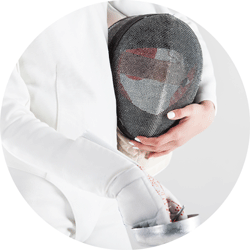February 5, 1950: an enterprising Chinese immigrant opened, the Hotel California in Todos Santos, an idyllic seaside town on the Baja California, Mexico, ingratiating himself with the locals by importing ice to serve the town’s first cold beers, so the legend goes.
Fast forward to May 2017, and tripadvisor reviews bear testimony to it still being a lovely place: a solid 4 stars and #3 of 9 hotels in town. Apparently, “the bathrooms are excellent”, indeed amongst “the best in Mexico”, if that is your thing; however, reviewer admonishment dished out to the receptionist caught – contain your horror – “playing on his phone” (2 stars only) strikes a note of caution. There’s no mention of mirrors on the ceiling, which you can take as you will, there’s plenty of room – get in quick and there’s still precious August availability – and you can check-out any time you like (note: the author bears no responsibility if you are turfed out by that receptionist at 11am).
But, in a sinister twist, the hotel’s current owner finds itself on the wrong end of claims before the California courts for trade mark infringement and unfair competition, for seeking, it is alleged, to obtain a commercial advantage by associating the hotel too closely with a different legend: the Eagles’ multi-platinum album and most popular song of the same name.
The hotel’s website disclaims rumours that the Eagles once owned it as “unequivocally false” and denies “any affiliation with the Eagles”, but presents a hazy history of parallels between the hotel, its surroundings and the song, which “mesmerize” its visitors: the dark desert highway to reach the hotel’s gate; the rings of nearby mission bells; stories of spirits and ghosts and of hippies rolling “colitas”….
The Eagles assert rights to the “Hotel California” mark based on recognition of its famous song, decades of sales of merchandise (from t-shirts and posters, to bathrobes, mugs and fridge magnets) bearing the mark and a pending trade mark application.
They allege that the hotel owner infringes their rights through advertising which leads US consumers to believe that the hotel is associated with the Eagles and served as inspiration for the song, merchandising bearing the words “Hotel California” and materials describing the hotel as “legendary”. Online reviews which connect the hotel with the song, it is said, demonstrate confusion by consumers.
The detailed arguments which might be deployed will no doubt be such as to make your head grow heavy and your eyes grow dim. If the Eagles establish their case, the mission bell may be about to toll for the Hotel California; if the band’s complaint is not upheld, then that ice may come in handy for some chilled pink champagne.
Protecting your brand
To return from those sunnier climes to the comfortingly overcast skies of the UK:
- Trade marks are signs or symbols used to distinguish the owner’s products or services from those of other traders – they require registration at a national or EU level
- Trade marks may be infringed, in brief summary:
- where an identical or similar mark is used in relation to identical or similar goods or services to those for which the mark is registered
- where the marks, goods or services are only similar it is necessary to demonstrate there is a likelihood of confusion between the two marks on the part of the public
- a well known mark with a reputation may benefit from wider protection if use of an identical or similar mark would take unfair advantage of or be detrimental to its distinctive character or repute
- Where a mark is not registered, the goodwill in it can still be protected by an action for “passing off” which requires, very briefly, the mark owner to establish goodwill in the mark, misrepresentation by the alleged infringer and damage.





